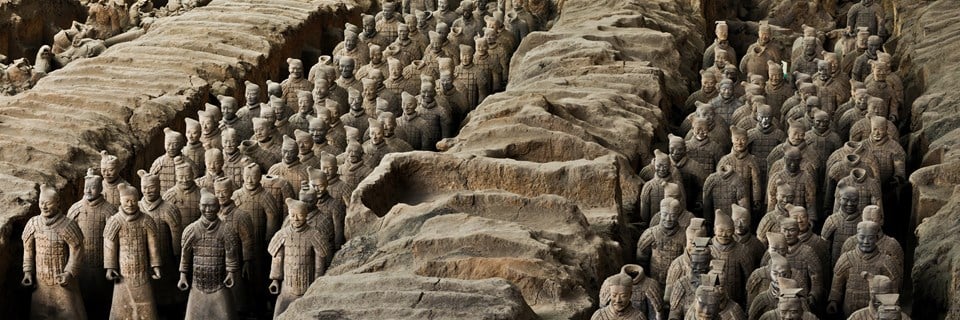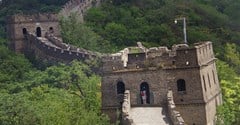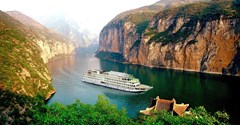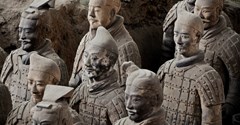Discover the story behind the Terracotta Army, an idea born out of a period of paranoia, vision and warfare at the dawn of Chinese society.
Lined up shoulder-to-shoulder in four excavated pits 25 miles from Xi'an, the vast number of warriors form a truly spectacular sight as a single entity. Look closer and you will see that, remarkably, each soldier has his own unique facial expression and hair style, and that tiny fragments of the rich colour which once covered their bodies still remain.
With such a spectacle before your eyes it is easy to get swept up in the majesty, detail and scale of the army and not properly comprehend its wider context and the illuminating window it provides into a very different China. The Terracotta Army and their horses protect the immense tomb of Qin Shi Huang, who holds the distinction of being the first of more than 500 Emperors of China and the many who unified and modernised this sprawling kingdom. What stands before visitors to this UNESCO world heritage site is a perfect embodiment of the paranoia, ambition, power, fear and sophistication of the era and the Emperor's insatiable quest for domination, perfection and immortality.
Sign up for our 'China in a Week' service - seven easily digestible emails to help plan your trip through the People's Republic
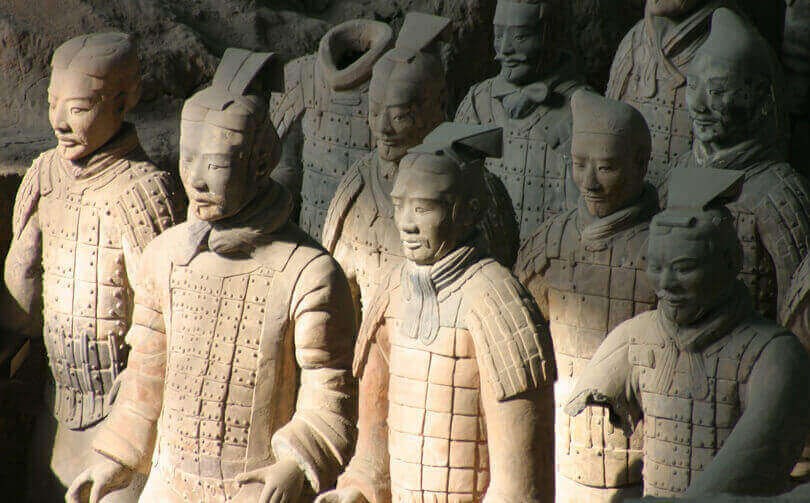
The First Emperor
Qin Shi Huang spent 35 years as the self-proclaimed first Emperor. During this time he unified a fractured China, conquering the other six 'Warring States' and several smaller city-states to settle the Middle Kingdom. In the course of his reign he laid the foundations for the Chinese society that was to develop over the ensuing centuries, enshrining the country's first written laws, creating its first currency and mint, establishing a central language and standardising weights and measurements. He linked fortifications in the north to create the first iteration of a Great Wall and built a vast network of highways and waterways to facilitate large-scale agriculture, rapid transportation throughout his dominion and the relocation of his subjects into new territories.
A strict political system was setup and the old feudal system broken up in rural China, replaced by state-run agricultural centres which imposed heavy taxes. Old cultures, languages and ways of life were destroyed or heavily diluted with the burning of books, the enforced migration of communities from the Qin heartland into newly conquered states and the imprisonment and death of hundreds of scholars, particularly proponents of Confucianism thought. Any chance of dissenting voices raising the disgruntled and heavily burdened masses was quickly extinguished. All of these policies will be recognised by anyone familiar with Mao Zedong, who eagerly studied the Qin Emperor centuries later and trod a similar path in a communist guise.
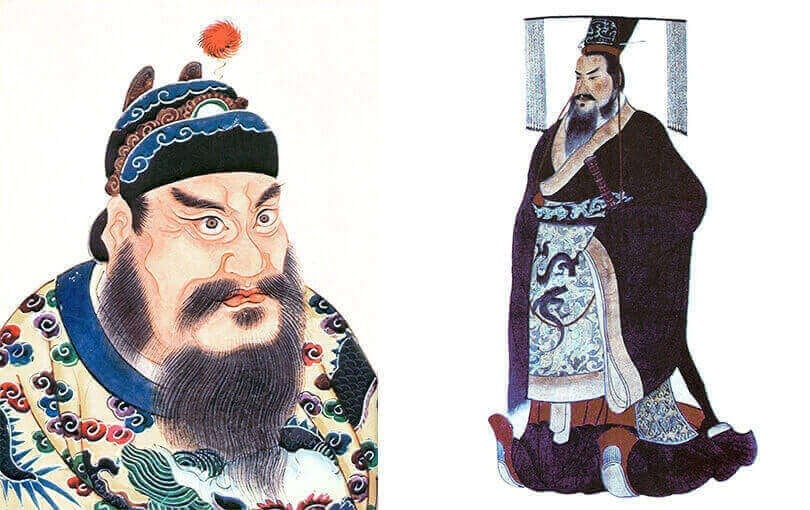
The search for immortality
As Qin Shi Huang's life wore on, the relentless Emperor found a new obsession which would occupy his time and dominate his thoughts; the search for the elixir of immortality. He dedicated much of his energies and many human resources to this ceaseless search and many attempts were made to concoct the elusive cocktail that would stretch his reach well beyond his reign. Ultimately, he never found the mythical potion, instead finding another way to gain a kind of immortality; the Terracotta Army.
The increasing paranoia of the Emperor traced its roots back to a series of failed assassination attempts made on him during the period of the Warring States. This fear of death pursued him incessantly and led him to set in motion plans to build an elaborate tomb to protect him in the after life, decorated as richly as a palace, riddled with defence mechanisms to thwart would-be intruders and said to harbour rivers of mercury, the closest thing to the elixir which he was so desperately seeking.
The Emperor's army
Of course, he didn't stop there though, as a group of local farmers accidentally discovered in 1974, when they stumbled upon the buired remains of the Terracotta Army. Little-by-little the site was excavated and the scale of what laid underneath for years was revealed.
So when you gaze out over this collection of soldiers, know that they are anything but mere statues. Consider instead that they are the direct product of a man obsessed with power and immortality, with the ability to lead armies to extraordinary victories and unify a previously fractured kingdom. They protect someone with the vision and force of will to impose the foundations of one of the world's oldest societies and the paranoia to dedicate much of his time to the pursuit of eternal life and the conquests which would follow in the afterlife, backed as ever by his faithful army.
China's Imperial Heritage
Xi'an and the Terracotta Army are one part of the legacy of Imperial age that one can experience on a tailor-made holiday in China. Beijing's Forbidden City reveals the secrets of life in the Ming and Qing eras, from where the last 24 Emperors ruled. Directly south from here on the city's central axis is the Temple of Heaven, from where the Emperor performed his role as the conduit between Heaven and earth to make sacrifices and pray for bountiful harvests. In the north of the city is the Summer Palace, playground of the Emperor and Empresses who would entertain guests in the landscaped gardens of the royal retreat.
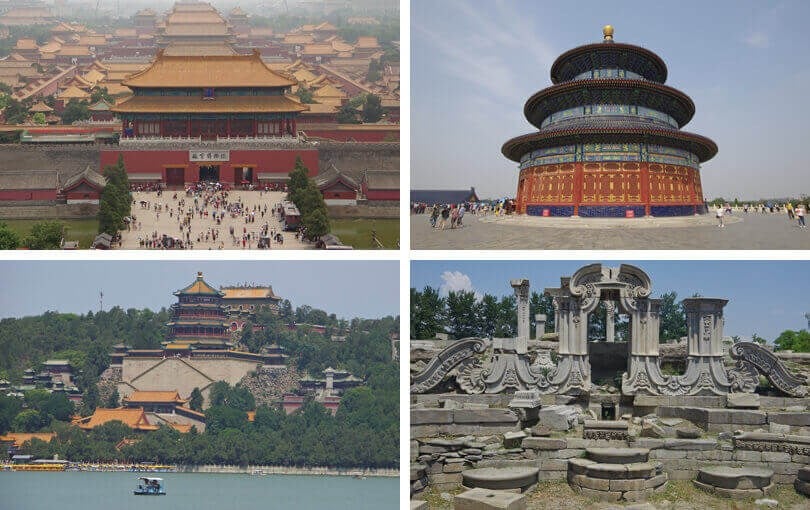
How to visit the Terracotta Army and China
The Terracotta Army and Xi'an's vibrant Muslim Quarter and historic city walls can be visited by bullet train from Beijing. Tour the former Imperial complexes and ancient hutong alleyways and hike along the Great Wall before a short train ride to Chengdu and a close-up encounter with baby pandas and a 71 metre high Giant Buddha. From here you might choose to cruise down the Yangtze River on a luxury 3 night cruise or admire the misty karst peaks and glorious rice terraces around Guilin. Finish in the metropolises of Shanghai or Hong Kong, where European heritage and oases of calm and tranquility provide a unique perspective beyond the glistening skyscrapers.
See our tours below for inspiration and give us a call or email to start discussing how we can use our unique ethos and understanding of life in China to tailor a tour suited to your interests and preferences.
Choose your perfect holiday
Find inspiration from our selection of itinerary suggestions, a great starting point for your next trip
View More Tours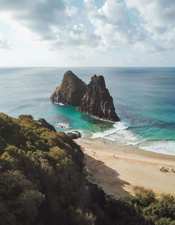
Stay in touch
Infuse your travels, with inspiration from our monthly newsletter.
READY - 20 April 2024
LANDMARK TOURS: Multi-Country & Cross Continent. New Cosmopolitan Tour: Buenos Aires, Iguazu, Rio
CHINA & INDIA: Local Life, People & Unique Cultures
GUIDES by Veloso Tours, are the best Local Hosts
PRIVATE VILLAS: Quality Time in exclusive settings
TRAVEL INSURANCE with extensive COVID-19 cover
